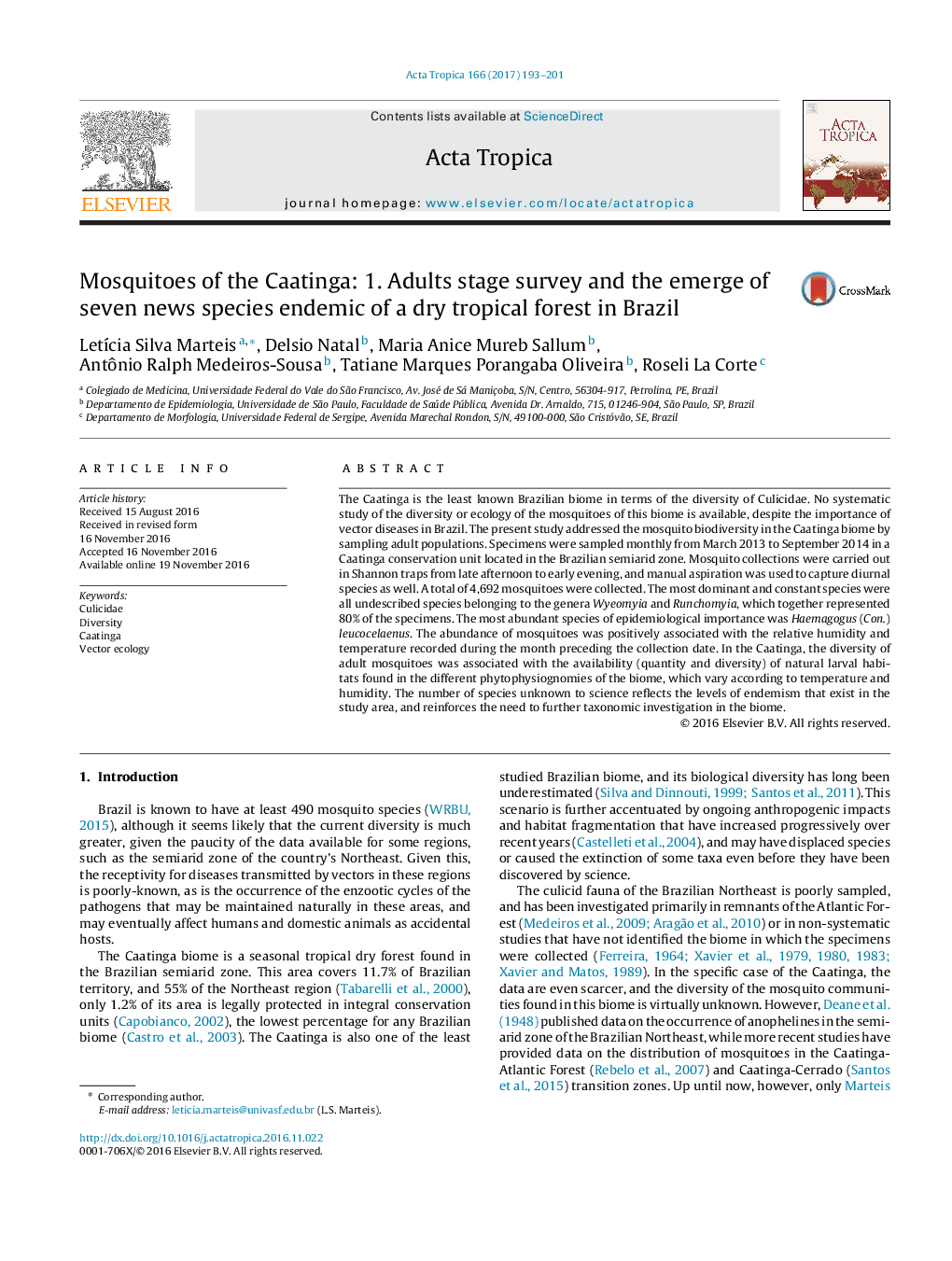| کد مقاله | کد نشریه | سال انتشار | مقاله انگلیسی | نسخه تمام متن |
|---|---|---|---|---|
| 5670904 | 1592758 | 2017 | 9 صفحه PDF | دانلود رایگان |

The Caatinga is the least known Brazilian biome in terms of the diversity of Culicidae. No systematic study of the diversity or ecology of the mosquitoes of this biome is available, despite the importance of vector diseases in Brazil. The present study addressed the mosquito biodiversity in the Caatinga biome by sampling adult populations. Specimens were sampled monthly from March 2013 to September 2014 in a Caatinga conservation unit located in the Brazilian semiarid zone. Mosquito collections were carried out in Shannon traps from late afternoon to early evening, and manual aspiration was used to capture diurnal species as well. A total of 4,692 mosquitoes were collected. The most dominant and constant species were all undescribed species belonging to the genera Wyeomyia and Runchomyia, which together represented 80% of the specimens. The most abundant species of epidemiological importance was Haemagogus (Con.) leucocelaenus. The abundance of mosquitoes was positively associated with the relative humidity and temperature recorded during the month preceding the collection date. In the Caatinga, the diversity of adult mosquitoes was associated with the availability (quantity and diversity) of natural larval habitats found in the different phytophysiognomies of the biome, which vary according to temperature and humidity. The number of species unknown to science reflects the levels of endemism that exist in the study area, and reinforces the need to further taxonomic investigation in the biome.
Journal: Acta Tropica - Volume 166, February 2017, Pages 193-201